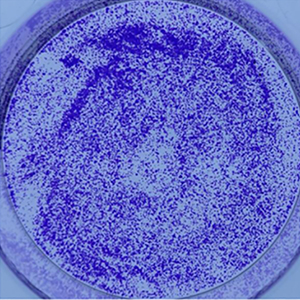 Smart Citations
Smart CitationsSee how this article has been cited at scite.ai
scite shows how a scientific paper has been cited by providing the context of the citation, a classification describing whether it supports, mentions, or contrasts the cited claim, and a label indicating in which section the citation was made.
Inhibition of APLN suppresses cell proliferation and migration and promotes cell apoptosis in esophageal cancer cells in vitro, through activating PI3K/mTOR signaling pathway
Esophageal cancer is the sixth leading cause of cancer mortalities globally with a high incidence rate. Apelin (APLN) plays regulatory roles in different organs. However, its role in esophageal cancer remains unknown. Therefore, our study aims to explore the effect of APLN on esophageal cancer. One hundred and eighty-four (184) esophageal tumor tissues samples from patients with esophageal cancer, and 11 esophageal tissues samples from healthy volunteers were analyzed for the expression of APLN. APLN was highly expressed in the tumor of patients with esophageal cancer and esophageal cancer cells. Patients with high expressions of APLN had a lower survival rate than the ones with low to medium expressions of APLN. Human esophageal carcinoma cell lines, TE-1 and ECA-109 cells were transfected with APLN siRNA to knockdown APLN, or transfected with pcDNA-APLN to overexpress APLN. Inhibition of APLN by siRNA-APLN reduced proliferative, migrative, and invasive abilities of esophageal cancer cells and promoted cell apoptosis, which could be all restored by pcDNA-APLN. Moreover, knocking down APLN by siRNA-APLN suppressed the PI3K/mTOR signaling pathway. These findings identify that APLN inhibition might ameliorate esophageal cancer through activating the PI3K/mTOR signaling pathway, thus APLN could be a potential target for esophageal cancer.
Edited by
This study was approved by the Ethic Committee of Shanghai Chest Hospital, Shanghai Jiaotong University, ChinaRights
National Natural Science Foundation of China; Three-year action plan for Shanghai to further accelerate the development of Chinese Medicine; third Round of Chinese Medicine Action Plan - Major Clinical Research Projects in Traditional Chinese Medicine; Interdisciplinary Program of Shanghai Jiao Tong UniversityHow to Cite

This work is licensed under a Creative Commons Attribution-NonCommercial 4.0 International License.
PAGEPress has chosen to apply the Creative Commons Attribution NonCommercial 4.0 International License (CC BY-NC 4.0) to all manuscripts to be published.








